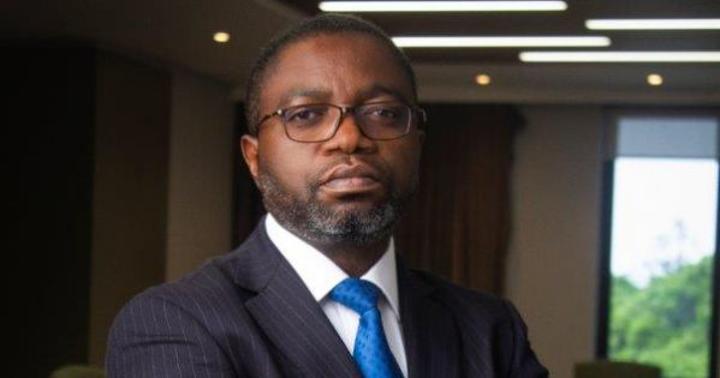
Africa-Press – Zambia. Prominent lawyer, John Sangwa SC has reiterated that his proposal to have the position of Chief Justice advertised will help restore credibility in the Judiciary.
Sangwa also emphasised that his proposal was within the provisions of the law and dismissed assertions by Mr. Dickson Jere and others that there was no legal framework to accommodate his proposal.
He also said that the Judicial Service Commission was also empowered by law to issue regulations in the event the legal framework governing the appointment of the Chief Justice and Judges to Superior Courts was deemed inadequate.
Below is the full letter responding to such assertions; I applaud Mr Dickson Jere and others that have read my letter to the President and shared their thoughts on the subject.
Engaging in intellectual debate on governance issues is healthy and good for our democracy. No one has a monopoly of ideas and countries are built and developed on ideas and not threats or arrogance. This is the best of way of avoiding the mistakes of the past.
The purpose of my letter to the President was to bring to his attention the bad practices, which have stained the soul of our Judicature, and generate debate on the best procedures to be followed in the appointment of the Chief Justice and Judges of the Superior Courts.
The new process must restore the integrity and independence of the Judicature, which has been seriously eroded. There are two issues raised by Mr Jere that merit my response.
The first is the idea that I want us to adopt the South African model in the appointment of our next Chief Justice. The second is the argument that there is no law, which underpins what I have called for in my letter.
In relation to the first point, I do not advocate that we replicate the South African experience or that of any other country in the appointment of the Chief Justice and Judges of the Superior
Courts. What we need is a Zambian solution to the Zambian problem informed by the Zambian experience to be solved relying on the Zambian resources and within the Zambian constitutional order.
That South Africa is going through the same experience is an indication that the problem of choosing a Chief Justice and appointment of Judges in a transparent manner is not a challenge unique to Zambia.
Whilst South Africa has to find a system or process that works for South Africa we have to devise a system that will work for Zambia. That is the essence of the discourse. We can learn from the South African experience but we cannot transplant its experience or solution to Zambia.
The second point raised by Mr Jere is the alleged lack of a legal framework to support what I have called for. I disagree with this proposition on several grounds. First, what I have called for is a simply a matter of common sense and fairness in the management of opportunities in public institutions.
Opportunities for employment in the public offices should be open to all Zambians and appointment should be on merit through a competitive process that is transparent and fair.
You do not need a law to require the Commission to publish an advertisement in newspapers inviting suitably qualified Zambians to apply for appointment to the office of Chief Justice of the Republic of Zambia, publicly interview those that have come forward, invite the people to participate in the process; then come with a list of candidates with their respective scores and recommend the best candidate to the President.
Secondly, the idea that there is no law in place to govern the procedure I have called for is not correct. I would not advocate for anything that is not backed by law. What I have called for is backed by Article 173(1) of the Constitution and sections 3 and 41 of the Service Commissions Act of 2016.
Article 173 provides for the values and principles of public service. The values and principles apply to service (a) at national, provincial and local government levels; and (b) to all State organs and State institutions. The Constitution defines State organs to include the Judiciary.
I, therefore, confine myself to the application of the values and principles to the Judicature. Article 173(1) sets out the guiding principles and values of public service which include “merit as the basis of appointment and promotion.”
Article 173(2) provides that the principles specified in Article 173(1) apply to service in State organs. Calling for appointments and promotions in the Judicature to be founded on merit is therefore consistent with Article 173.
Based on Article 173 all appointments and promotions in the Judiciary must be based on merit. Any appointment or promotion not founded on merit is unconstitutional and therefore null and void.
The President, the Judicial Service Commission, the National Assembly and the person accepting promotion or appointment to the office of Chief Justice are bound by Article 173 of the Constitution.
Article 173 of the Constitution leaves it to those with power to make appointments or promotions in the Judicature to devise the practice and procedure of ensuring that such
appointments and promotions are based on merit. Interested parties have a corresponding obligation to ensure that they only take part in a process that is based on merit.
Article 173 of the Constitution must be read with the provisions of the Service Commissions Act, 2016. Section 3(f) of the Act has amplified the values and principles of public service. It reads: “— fair competition and merit as the basis of appointments and promotions.”
For those that see a need for the law to expressly provide for the advertisement of the vacancy in the office of Chief Justice and subjecting the candidates to public interviews, there is
nothing that stops the Judicial Service Commission from issuing the necessary regulations to provide for such a process. This, in any event, is provided for in Section 41 of the Service Commissions Act which states that; “A Commission may, in consultation with the Minister under whose statutory function
a Commission falls, by statutory instrument, make regulations for the better carrying out of the provisions of this Act.” It follows, therefore, that the appointing of the Chief Justice through a process other that one which is open, fair and competitive would be unconstitutional.






